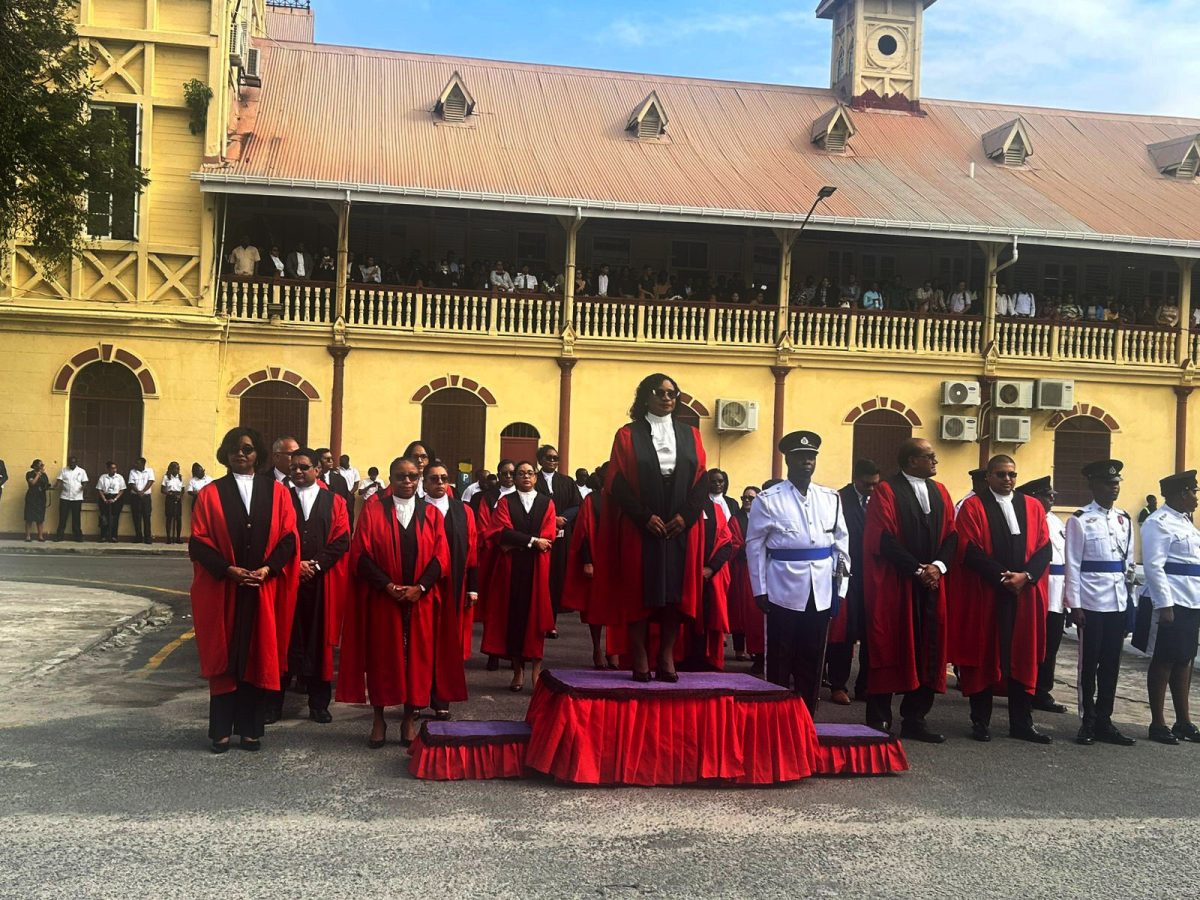-but says judges face difficulty meeting judicial deadlines
At the ceremonial opening of the 2025 Law Year, Acting Chief Justice Roxane George shed light on the significant workload faced by the judiciary, driven by the introduction of the e-litigation system.
While celebrating the modernisation of court operations, she spoke of the high volume of cases filed and the challenges of meeting judicial deadlines.
Since the e-litigation portal’s phased roll-out began in 2024, the courts have seen a surge in case filings. By December 31, 2024, a total of 311 appeals and applications had been filed through the portal at the Court of Appeal. The system’s expansion to the Full Court and High Court in October 2024 saw an additional 37 appeals filed in the Full Court and 1,637 cases lodged in the High Court. Breaking down the High Court filings, 1,373 cases were recorded in Demerara, 377 in Berbice, and 76 in Essequibo.
Despite the portal’s success in streamlining operations, the Chief Justice stressed that the courts remain burdened by the sheer volume of cases. “Given the heavy caseload handled by each civil judge, the court system cannot realistically conduct trials in every case or deliver judgments within the four-month time frame prescribed by law,” she informed.
Challenges persist in fully optimising the new system. The Chief Justice pointed to “ongoing minor issues” with the system developer, CrimsonLogic, but emphasised that these are being actively addressed. “Despite these challenges, the transition to the e-litigation system has been a seamless game changer,” she added, commending the adaptability and enthusiasm of lawyers, litigants, judicial officers, and court staff.
Justice George also urged the public to consider alternative dispute resolution mechanisms, such as mediation and restorative justice, to help reduce the court’s caseload and improve the efficiency of the justice system.
She has also called for the urgent implementation of an e-payment system to complement the e-litigation portal, emphasising its potential to streamline court payments and significantly benefit litigants, lawyers, and vulnerable groups.
“The only major matter still to be fully addressed is the e-payment system, which I know lawyers and litigants are eagerly anticipating,” she stated. The proposed platform would allow payments for filing cases, bail, fines, and maintenance to be made via bank cards, bank-to-bank transfers, or other electronic methods. She also highlighted the transformative potential of the e-payment system, particularly for maintenance payments, which she noted would be “most beneficial to women and children.” Once operational, the platform would allow individuals to make payments from any location with internet access, using methods such as mobile money transfers or online banking. “This innovation would ensure that individuals liable for maintenance can fulfill their obligations seamlessly, regardless of where they are located,”
The Chief Justice expressed optimism that the system would be operational by the end of the first quarter, and that its implementation would also align with broader digital initiatives, including the planned e-ticket payment system for traffic violations under the justice sector reform programme.
She disclosed that discussions with Senior Minister in the Office of the President with Responsibility for Finance and Public Service, Dr Ashni Singh, and Attorney General Anil Nandlall SC are ongoing to advance the initiative.











